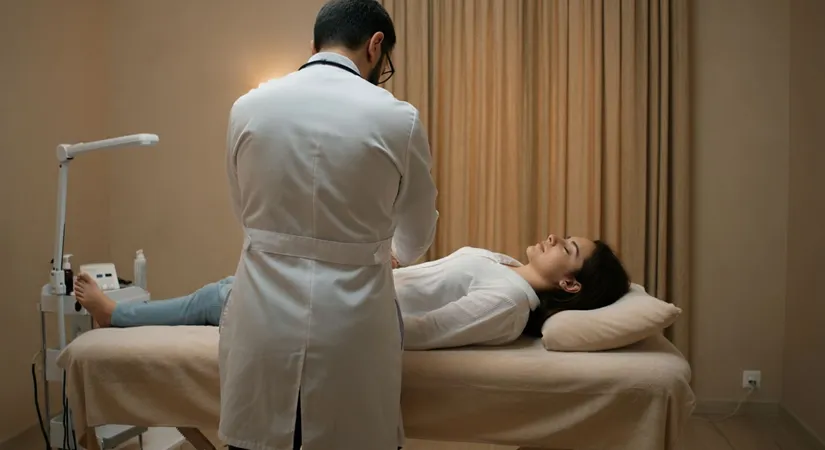Pressure Points: Unlocking the Secrets of Natural Pain Relief
Discover the natural path to pain relief and stress management with pressure points. Empower yourself with ancient techniques today.
Pressure points have been a fundamental part of traditional medicine for centuries, promising relief from pain and stress without the need for invasive treatments or pharmaceuticals. This natural technique revolves around understanding the body's complex networks of blood vessels, nerves, and internal organs that connect at various pressure points. Known for their therapeutic benefits, pressure points can be particularly effective in alleviating headaches, reducing stress, and even improving sleep. In this blog, we explore how you can leverage this ancient wisdom to enhance your daily life naturally and effectively.
Understanding the Basics: What Are Pressure Points?
Pressure points are specific areas on the body that are believed to be sensitive to pressure, and when activated correctly, can influence the health of related organs and areas. This concept is rooted in ancient traditions and systems of healing, such as Acupuncture and Reflexology, which focus on the flow of energy or Chi through the body's meridians. By applying pressure to these designated points (which can be mapped out in detailed pressure point charts), individuals can experience improvements in physical and mental health. The scientific validity of acupressure is still widely debated, yet many users report significant relief from chronic issues such as headaches, anxiety, and muscular pain.
In the realm of holistic health, pressure points are often utilized in various therapies to promote healing and well-being. For instance, acupressure techniques involve using fingers, palms, or special tools to apply pressure to these points, aiming to alleviate discomfort and enhance energy flow. This practice is not only popular for its potential to provide instant pain relief but also for its role in stress reduction and relaxation. Understanding how pressure points work can empower individuals to manage their health naturally, offering a complementary approach to conventional medical treatments.
Moreover, pressure points are integral to many Eastern healing methods, where they are used to balance the body's energy and promote harmony. Whether you're exploring pressure points for headaches and migraines or seeking the best pressure points for stress relief, the knowledge of these points can be a valuable tool in your wellness arsenal. As interest in natural and holistic pain relief methods grows, learning about pressure points and their applications can provide a deeper understanding of how to use them effectively for various health concerns.
Effective Techniques: How to Use Pressure Points for Pain Relief
Understanding how to use pressure points for pain relief can be a game-changer in managing discomfort naturally. The key lies in applying the right amount of pressure to specific acupressure points, which can significantly alleviate pain. For instance, the L14 point, located on the hand between the thumb and index finger, is renowned for its effectiveness in relieving headaches and migraines. Similarly, the P6 point on the inner wrist is often targeted to reduce nausea and motion sickness. These pressure points can be activated through gentle circular motions or firm, steady pressure, depending on the desired effect.
Acupressure techniques can be incorporated into reflexology therapy sessions or practiced at home, provided you have the necessary knowledge and guidance. For those new to this holistic pain relief method, consulting with an experienced practitioner is advisable to ensure you are targeting the correct pressure points and applying the appropriate techniques. This approach not only offers instant pain relief but also promotes overall well-being by enhancing the body's energy flow.
Moreover, pressure point therapy is versatile and can be tailored to address various health concerns, from stress and anxiety to chronic pain conditions. By learning how to use pressure points effectively, individuals can empower themselves with a natural tool for pain management, complementing traditional medical treatments. As interest in holistic and natural migraine solutions grows, mastering these techniques can provide a valuable addition to your wellness routine.
Exploring Benefits: Can Pressure Points Relieve Stress and Anxiety?
In today's fast-paced world, stress and anxiety have become common challenges, affecting mental and physical health. However, pressure points offer a promising natural remedy for these issues. By understanding and utilizing specific acupressure points, individuals can experience significant relief from stress and anxiety. One of the most effective pressure points for stress relief is the Tai Chong point (Liver 3), located on the foot. This point is renowned for its ability to regulate emotions and enhance energy flow, making it a popular choice in pressure point therapy.
Another powerful point is the Yin Tang, situated between the eyebrows. This point is often targeted in acupressure techniques to alleviate stress and induce relaxation. Acupuncturists frequently incorporate these points into their treatments to help patients achieve a deeper state of calm and balance. The application of pressure to these points stimulates the body's natural healing mechanisms, promoting improved blood circulation and energy balance, which are crucial for stress reduction.
Moreover, pressure point therapy is a non-invasive method that empowers individuals to manage stress and anxiety naturally. By learning how to use pressure points effectively, people can incorporate these techniques into their daily routines, offering a holistic approach to mental well-being. As interest in natural anxiety comfort spots and stress-busting pressure techniques grows, understanding the benefits of pressure points can provide a valuable tool for enhancing overall quality of life.
